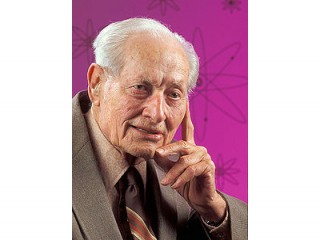
Edward Knipling biography
Date of birth : 1909-03-20
Date of death : 2000-03-17
Birthplace : Port Lavaca, Texas
Nationality : American
Category : Science and Technology
Last modified : 2011-03-14
Credited as : Entomologist, Sterile insect technique , World Food Prize
Edward Fred Knipling (born 1909), American entomologist, conducted and directed research for the U.S. Department of Agriculture, concentrating on insect problems.
Edward Knipling was born on March 20, 1909, in Port Lavaca, Texas. He received his bachelor of science degree from Texas A & M College in 1930. That summer he began work for the Department of Agriculture, assisting in field studies for the Bureau of Entomology and Plant Quarantine at Tiahuallio, Mexico.
In 1931 Knipling was appointed a junior entomologist to conduct research on the biology and control of the screw-worm at Menard, Texas. He received his master of science degree from Iowa State University in 1932, and during the next few years he conducted research on various livestock pests.
In 1940 Knipling was placed in charge of studies on mosquitoes of the Northwestern states. During World War II he directed the work of the Orlando, Florida laboratory. He helped develop DDT and other insecticides and repellents for use by the U.S. armed forces and their allies in controlling the insect carriers of malaria, typhus, plague, and other diseases. In recognition of his accomplishments he was presented the U.S. Typhus Commission Medal in 1946, the President's Medal for Merit in 1947, and the King's Medal for Service in the Cause of Freedom by Great Britain in 1948.
In 1947 Knipling received his doctorate in entomology from lowa State University. He directed research on insects affecting man and animals until 1953, when he became director of the U.S. Department of Agriculture's Entomology Research Division.
Knipling always concentrated his research on finding improved methods for controlling injurious insects and for utilizing beneficial insects to fullest advantage. In his early studies of the ecology, behavior, and mating habits of screwworm flies, he had speculated on the possibility of stopping isolated infestations by overwhelming the native flies with laboratory-reared insects carrying genetic deficiencies. In 1953 he was able to demonstrate eradication of flies by sterilization techniques on the island of Curaç ao in the Netherlands Antilles.
As early as 1956 Knipling pointed out that chemical pesticides also kill natural predators; he suggested the use of insect diseases that would not be dangerous to man, animals, or plants. In speaking for increased support for entomological research, he was a strong proponent of the concept of total insect population control. He proposed more effective use of natural predators and the isolation and synthesis of attractants to lure insects into traps.
In 1966 Knipling was elected to the National Academy of Sciences, given the Rockefeller Public Service Award, and presented with the National Medal of Science for unique biological approaches to the control of insect vectors.
A useful background book with respect to Knipling's work is Desmond P. Murray, Species Revalued (1955).
















